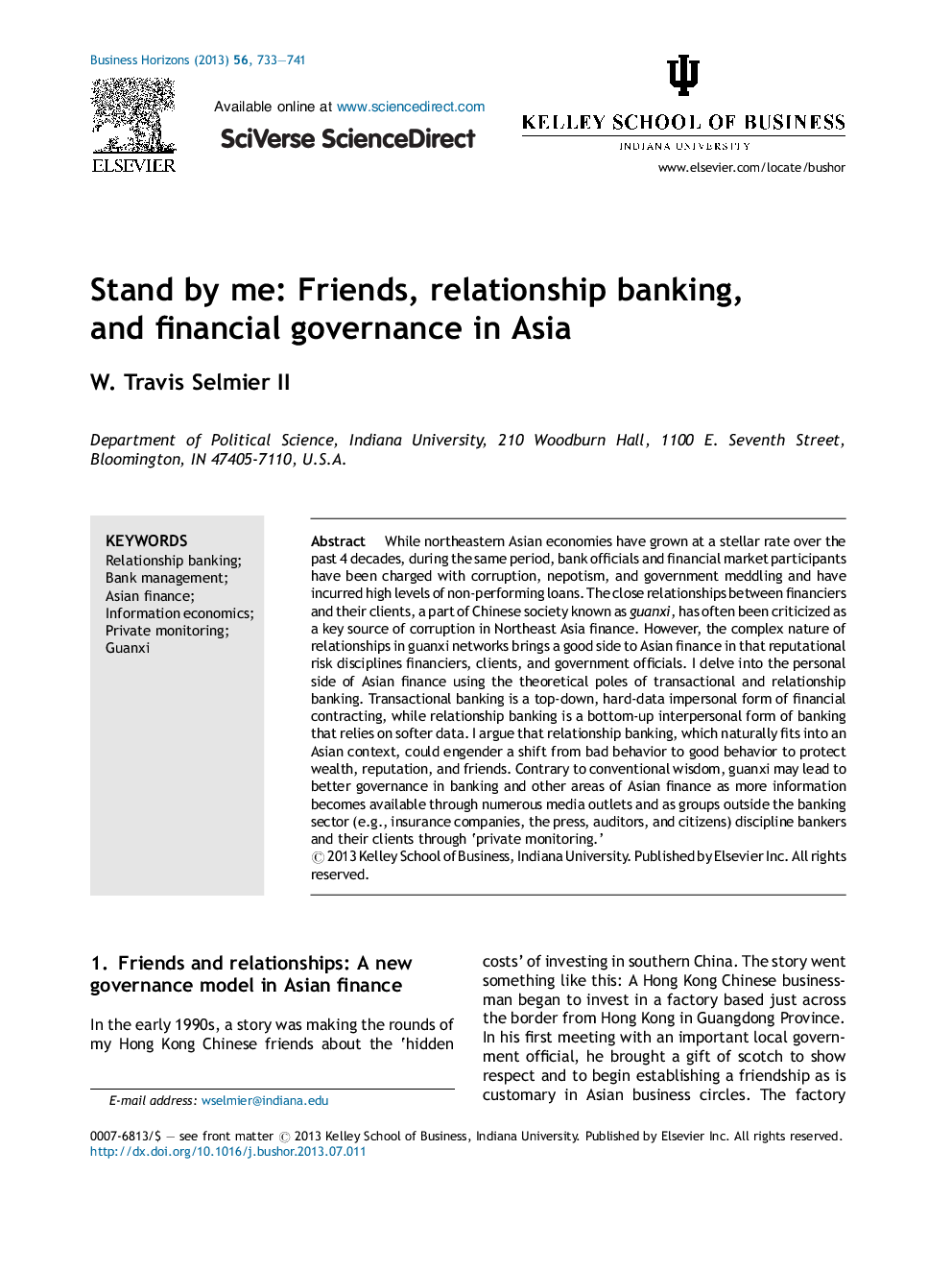| Article ID | Journal | Published Year | Pages | File Type |
|---|---|---|---|---|
| 1013949 | Business Horizons | 2013 | 9 Pages |
While northeastern Asian economies have grown at a stellar rate over the past 4 decades, during the same period, bank officials and financial market participants have been charged with corruption, nepotism, and government meddling and have incurred high levels of non-performing loans. The close relationships between financiers and their clients, a part of Chinese society known as guanxi, has often been criticized as a key source of corruption in Northeast Asia finance. However, the complex nature of relationships in guanxi networks brings a good side to Asian finance in that reputational risk disciplines financiers, clients, and government officials. I delve into the personal side of Asian finance using the theoretical poles of transactional and relationship banking. Transactional banking is a top-down, hard-data impersonal form of financial contracting, while relationship banking is a bottom-up interpersonal form of banking that relies on softer data. I argue that relationship banking, which naturally fits into an Asian context, could engender a shift from bad behavior to good behavior to protect wealth, reputation, and friends. Contrary to conventional wisdom, guanxi may lead to better governance in banking and other areas of Asian finance as more information becomes available through numerous media outlets and as groups outside the banking sector (e.g., insurance companies, the press, auditors, and citizens) discipline bankers and their clients through ‘private monitoring.’
